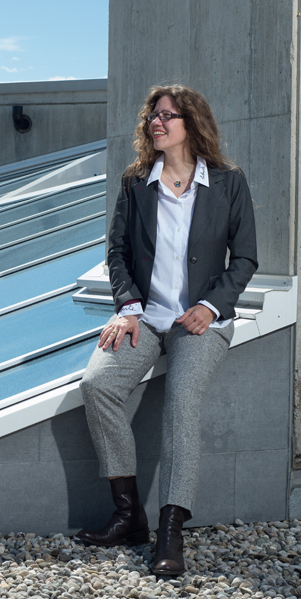Consolidator Grant 2015 de l'European Research Council décerné à la prof. Monika Salzbrunn
Monika Salzbrunn, professeure ordinaire de "Religions, Migration, Diasporas" à la Faculté de Théologie et de Sciences des Religions de l'Université de Lausanne, a décroché un des prestigieux Consolidator Grants 2015. Décerné par l'European Research Council, ce subside de recherche d'un montant de deux millions d'euros financera un projet de recherche de 5 ans visant à analyser différentes pratiques artistiques comme moyens d'expression politique. L'équipe internationale, composée de six chercheur-e-s, mènera des recherches en Californie, au Cameroun et dans le bassin méditerranéen en employant des méthodes multi-sensorielles et audio-visuelles.
La prof. Salzbrunn a été sélectionnée par l'European Research Council (ERC) en raison de l'excellence de son CV et de ses publications ainsi que de son projet. L'ERC est la première organisation européenne de financement pour l'excellence en matière de recherche. Chaque année, elle sélectionne et finance des chercheurs de pointe de toute nationalité et de tout âge afin de mener des projets ambitieux basés en Europe. Le projet de la prof. Monika Salzbrunn est le seul d'un-e chercheur-e établi-e en Suisse à avoir été sélectionné dans les panels « Social Sciences and Humanities » (SH) de l'ERC Consolidator Grant en 20105. Monika Salzbrunn est également la première femme à avoir décroché un Consolidator Grant en Sciences Humaines et Sociales en Suisse depuis l'existence de l'ERC. Avant de recevoir cette distinction, Monika Salzbrunn était déjà à la tête de plusieurs projets du Fonds National Suisse, de la Commission européenne, du CNRS et de la DFG (Programme Emmy Noether).
Film de présentation
Creativity and Performance as Subversive Forms of Political Expression in Super-Diverse Cities
ARTIVISM
ARTIVISM aims at exploring new artistic forms of political expression under difficult, precarious and/or oppressive conditions. It asks how social actors create belonging and multiple forms of resistance when they use art in activism or activism in art. What kind of alliances do these two forms of social practices generate in super-diverse places, in times of crisis and in precarious situations? Thus, ARTIVISM seeks to understand how social actors engage artistically in order to bring about social, economic and political change. Going beyond former research in urban and migration studies, and beyond the anthropology of art, ARTIVISM focuses on a broad range of artistic tools, styles and means of expression, namely festive events and parades, cartoons and comics and street art. By articulating performance studies, street anthropology and the sociology of celebration with migration and diversity studies, the project challenges former concepts, which took stable social groups for granted and reified them with ethnic lenses. The applied methodology considerably renews the field by bringing together event-, actor- and condition-centred approaches and a multi-sensory framework. Besides its multidisciplinary design, the ground-breaking nature of ARTIVISM lies in the application of the core concepts of performativity and liminality, as well as in an examination of the way to advance and refine these concepts and to create new analytical tools to respond to recent social phenomena. We have developed and tested innovative methods that respond to a postmodern type of fluid and temporary social action: audio-visual ethnography, urban event ethnography, street ethnography, field-crossing, and sensory ethnography (apprenticeship). Therefore, ARTIVISM develops new methods and theories in order to introduce a multi-faceted trans-disciplinary approach to the study of an emerging field of social transformations that is of challenging significance to the social sciences.
Introductory film

